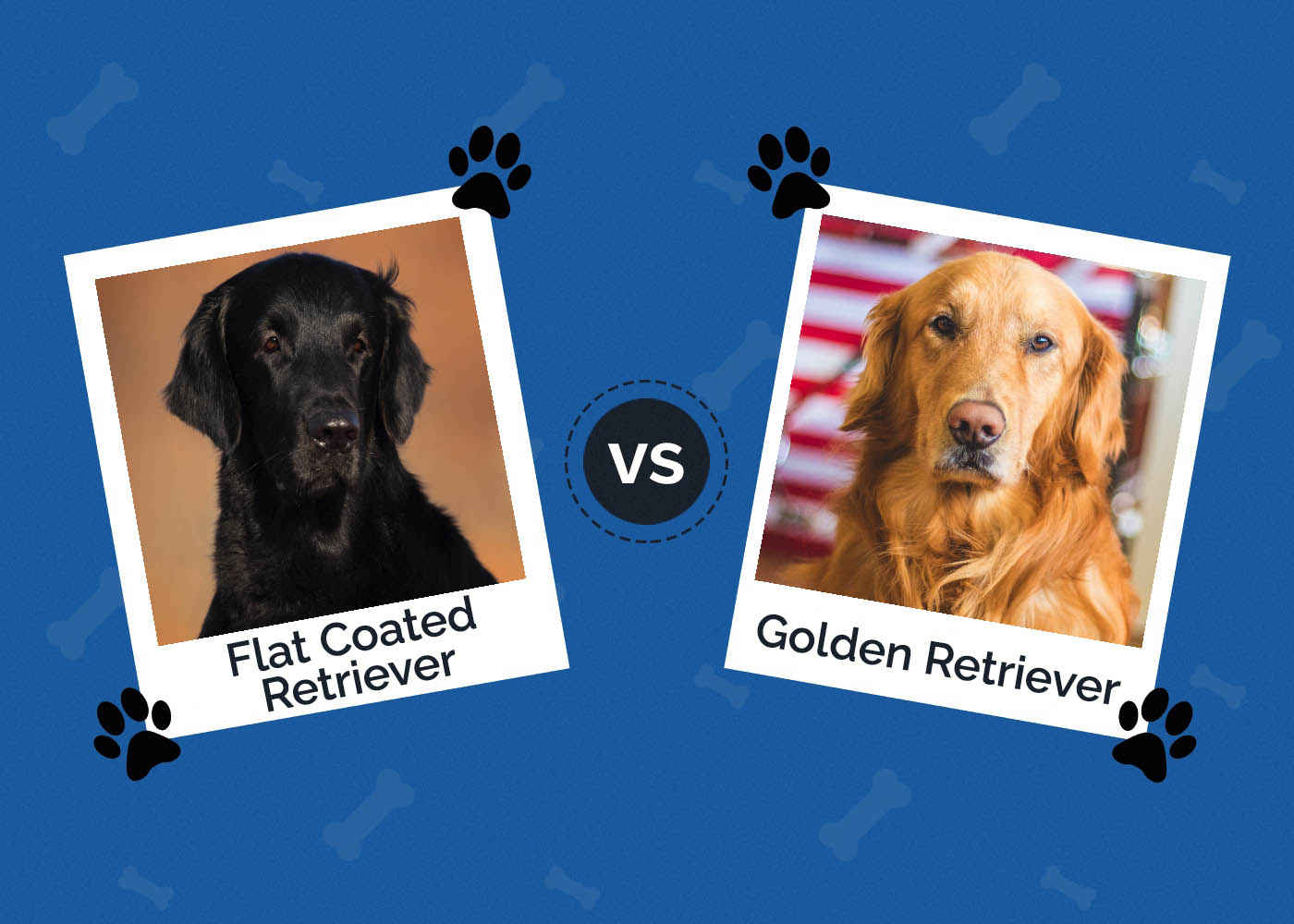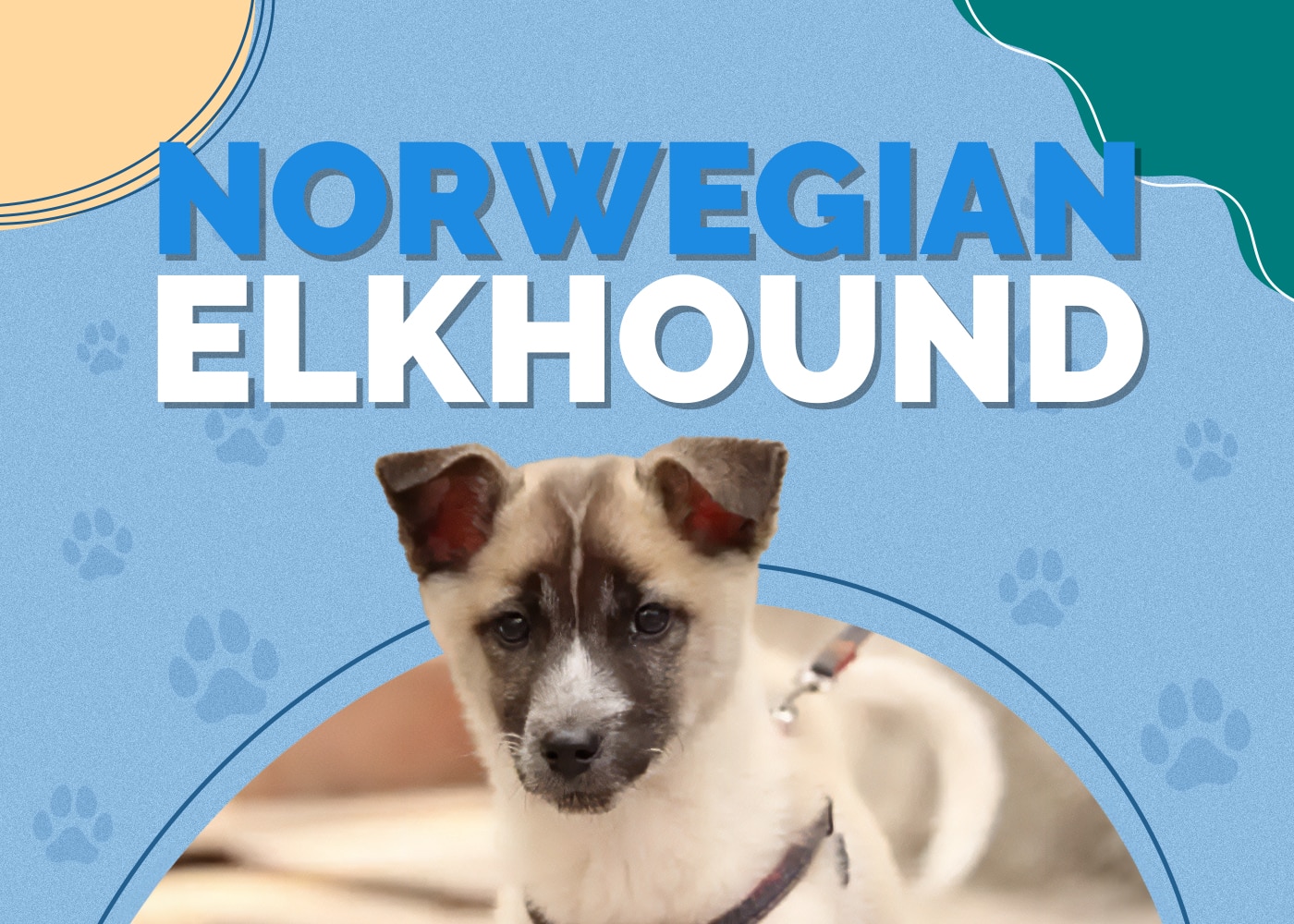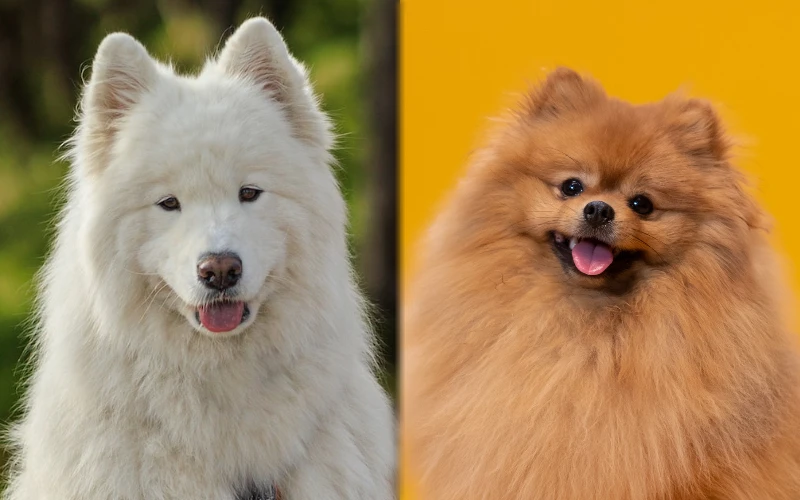Redbone Coonoodle (Redbone Coonhound & Poodle Mix): Info, Pictures, Characteristics & Facts

Updated on
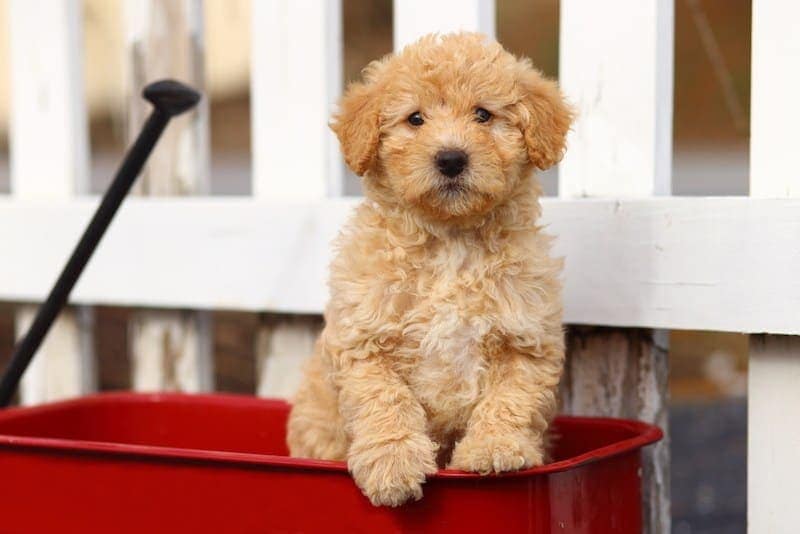
| Height: | 18–24 inches |
| Weight: | 45–75 pounds |
| Lifespan: | 10–12 years |
| Colors: | Black, white, brown, blue, cream, grey, red, silver |
| Suitable for: | Families with children and pets, companionship |
| Temperament: | Intelligent, independent, stubborn, playful, and affectionate. |
The Redbone Coonoodle is a mixed breed created by mixing the Redbone Coonhound with a Poodle. It may look more like either parent. However, it will likely be a medium to large dog with a long neck and muzzle. It has brown or amber eyes and a brown or black nose.
The Redbone Coonoodle is an intelligent breed, but the Coonhound in it may make it challenging to train. This breed is notorious for stubbornness, so an experienced owner is preferred unless you can spring for puppy school or obedience classes.
Redbone Coonoodle Puppies
When you’re looking for a Redbone Coonoodle, take your time to find a reputable breeder who is experienced with this breed. Breeders specializing in Redbone Coonoodles will often charge more but produce higher-quality puppies due to their intimate knowledge of its genetics. The tests they run will increase the cost as well as breeding rights, and show-quality dogs will also cost more.
When choosing a breeder, make sure you can learn about and meet the parents of your puppy. Doing so can tell you a lot about what you can expect as your puppy grows, particularly in terms of coat color and personality. You should avoid breeders that hide away from the parents.
3 Little-Known Facts About the Redbone Coonoodle
1. The Redbone Coonhound Parent Is a Tireless Tracker.
2. Owners Originally Trimmed the Poodle Parent’s Hair to Make It a Better Swimmer.
3. The Parent Poodle Was Originally Bred as a Water Retriever More Than 400 years ago.
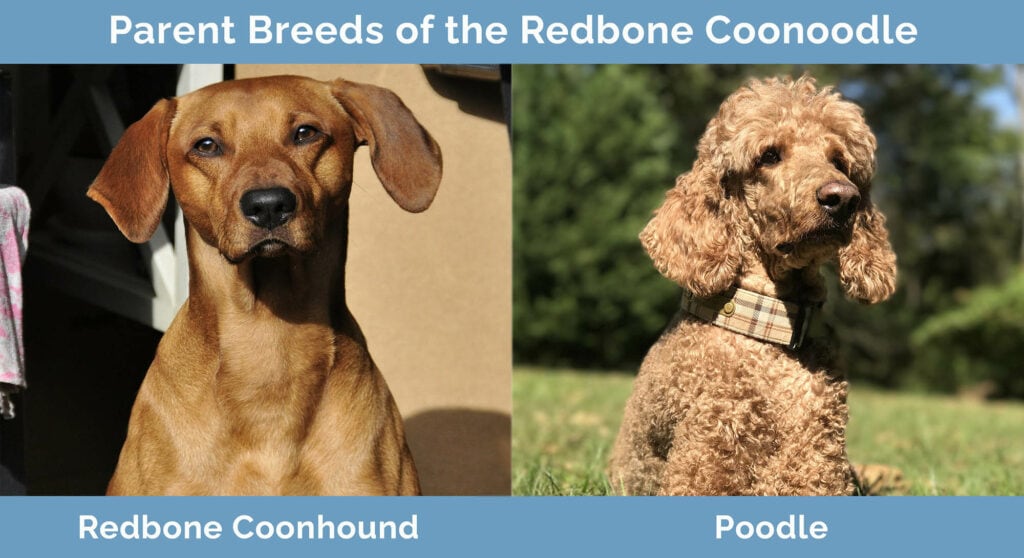
Temperament & Intelligence of the Redbone Coonoodle 🧠
The Redbone Coonoodle is affectionate and loyal. It’s a good family dog and enjoys children. It’s also very playful and loves games of fetch and tug of war. It likes to follow you around and go for walks. The Redbone Coonoodle is extremely intelligent and can learn quickly when it wants to.
Unfortunately, the Redbone Coonhound in them can make them stubborn and known for not following orders. An experienced owner who knows how to train them at an early age is best, but puppy schools can teach you how to train your pet to behave. Typically, the faster you address bad behavior, the better.
Are These Dogs Good for Families? 🏡
Redbone Coonoodles make great family pets, and they like it when you include them in family functions. They may be too big for toddlers, but anyone older than that will likely have a best friend for years. They love to play and will often coax family members into games.
Does This Breed Get Along with Other Pets? 🐶 😽
Redbone Coonoodles get along very well with other dogs but require plenty of early socialization to break their instinct to chase cats and other small animals. Once properly socialized, they can cohabitate without fear, though your Redbone Coonoodle will likely still chase any small animals that enter the yard.
Things to Know When Owning a Redbone Coonoodle
Let’s look at some factors you must consider before purchasing a Redbone Coonoodle.
Food and Diet Requirements 🦴
The Redbone Coonoodle is a medium to large dog that will require 2 to 3 cups of food per day spread out over several meals. Spreading the food out helps reduce the chance your pet will swallow too much air, resulting in a potentially life-threatening condition known as bloat.
It also helps keep your pet from developing digestive issues and helps prevent obesity. We recommend a high-quality food fortified with vitamins and other essential nutrients to help your puppy grow into a healthy dog.
Daily Exercise Requirements 🐕
The Redbone Coonoodle is a moderately active dog that requires about 45 minutes of daily exercise to stay healthy and prevent obesity. They enjoy going for walks, running in the park, and playing fetch. A household with children can often provide enough exercise each day while they play, but if you don’t have children, you’ll need to set aside a little time each day to help your pet stay fit.
Training 🦮
The Poodle parent is extremely intelligent and easy to train; however, the Redbone Coonhound can be stubborn and even defiant. The Redbone Coonoodle has the capacity and intelligence to be an obedient, well-trained pet, but achieving that goal depends on which parent the puppy takes after more, as well as the owner’s experience.
Enrolling your pet in puppy classes is the best way for an inexperienced owner to learn how to train properly to achieve maximum results.
Grooming ✂️
Your pet’s grooming will also depend on which parent they take after. The Poodle sheds very little, while the Redbone Coonhound is a moderate shedder, and their coat also tends to develop a musty smell requiring frequent baths.
The ears of your Redbone Coonoodle will need frequent cleaning and drying to avoid ear infections that often result from too much moisture sitting in the ear. Tooth brushing is another requirement to keep your pet’s teeth and gums healthy. When brushing, always use dog toothpaste since human toothpaste contains the artificial sweetener Xylitol, which can be deadly to dogs.
Health and Conditions ❤️
Mixed breeds often have far fewer health problems than pure breeds because due to selective breeding. However, there are still a few common problems that we’ll look at in this section.
- Entropion
Entropion is a painful condition that causes the dog’s eyelid to roll in on itself. As the eyelid rolls in, it rubs on the cornea. This rubbing can cause corneal ulcers and tears and can even result in pigment deposits on the cornea, which can blur your pet’s vision. Symptoms include holding the eye shut, excessive tearing, and squinting. Surgery is usually required to fix Entropion.
- Corneal Dystrophy
Corneal dystrophy is a term used for a collection of conditions resulting from a foggy or hazy cornea. It is a genetic condition that can reduce vision, cause pain, sensitivity to light, and squinting, and may cause patches of white or grey to appear on the eye. There is very little treatment for this condition, and many times it does not affect the dog’s vision.
- Hip Dysplasia
Hip Dysplasia is a common problem in several larger dogs, and the Redbone Coonoodle is no exception. This genetic condition affects how the hip joint forms, preventing the leg bone from moving smoothly. As the two bones rub together, they wear out and deteriorate. Improper nutrition and obesity can make Hip Dysplasia progress faster. Signs of this condition include a decreased range of motion, difficulty getting up from a resting position, and a swaying gate. In some cases, surgery can help, as can modifications to diet and physical therapy.
- Coonhound Paralysis
Coonhound Paralysis is a condition that affects your pet’s nerves, often caused by a reaction to raccoon saliva, but can also occur in pets that have not encountered a raccoon. Symptoms include a stiff leg that spreads to all four legs. They may also experience slowing reflexes and decreased muscle mass. Treatment includes intense physical therapy and can include hospitalization.
Male vs Female
There is very little difference between the male and female Redbone Coonoodle. Both are typically the same size and weight and have similar temperaments. The most significant factor contributing to size and behavior is which parent the puppy takes after.
Summary
The Redbone Coonoodle is an intelligent and attractive breed that’s great for families and large homes. They are better suited to experienced owners, but new owners can still enjoy them if they exercise plenty of patience or get help from puppy classes or obedience training.
We hope you have enjoyed our look at this little-known mixed breed and have learned something you didn’t know before. If we have helped you find your next pet, please share this complete guide to the Redbone Coonoodle on Facebook and Twitter.
Related Reads:
Featured Image Credit: JLSnader, Shutterstock




